Ortlieb Back Roller Free pannier review - all the ingredients of the Classic minus the PVC
Offers everything that a decent touring pannier should without the use of harmful PVC - hence 'free'
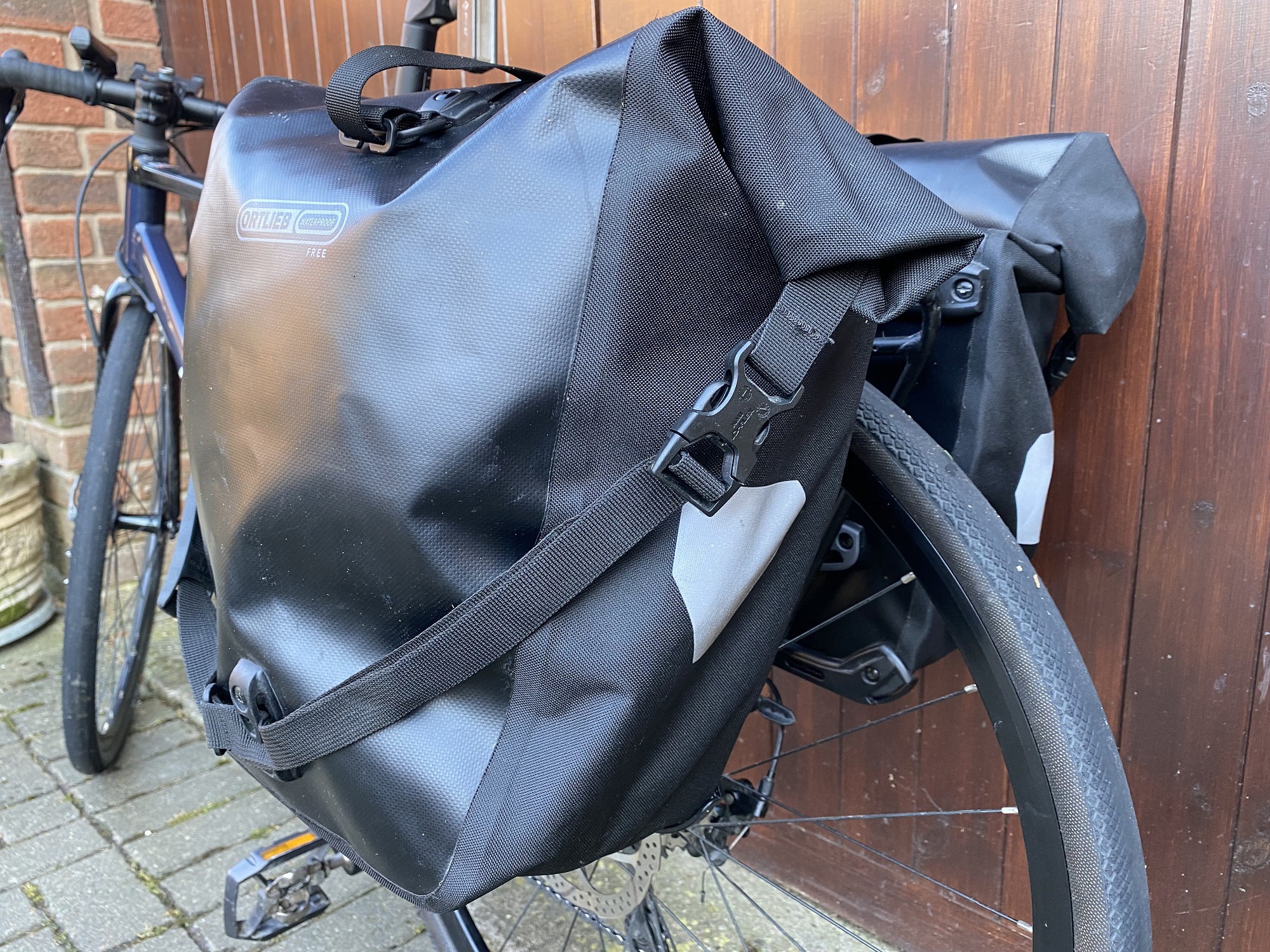
Ortlieb's Back Roller Classic is hugely popular among tourers with good reason - it does exactly what a pannier should and stands the test of time. The latest addition to the range, the Back Roller Free, boasts exactly the same functional, practical design with eco-credentials to boot. Without the double coating of PVC, the material is a little more malleable and prone to abrasions but overall it does exactly what it should without the use of one of the most harmful plastics out there.
-
+
Functional
-
+
100% waterproof
-
+
PVC-free
-
+
Well made
-
+
5 year warranty
-
-
Potentially more prone to aesthetic wear than the Classic pannier
You can trust Cycling Weekly.
If something works well, why change it? Ortlieb’s Back Roller panniers are a superb example of this. The rugged design does exactly what a pannier should, protecting hefty loads from the elements and offering a stable and secure attachment to a variety of racks.
Ortlieb isn't a company to sit back and be complacent where innovation and new technologies are concerned though; its latest Back Roller Free means those upgrading or investing for the first time have a more environmentally friendly choice.
I got my hands on a pair of Ortlieb Back Roller Free panniers just in time for a three-week tour to the UK from northern Spain. I’ve certainly given them a rigorous test. Read on to find out how they fared…
CONSTRUCTION
The overall design of the Back Roller Free is identical to the Back Roller Classic. Once you’ve stuffed it full with (up to) 20 litres of cargo, a hard strip of plastic makes a few rolls of the pannier a breeze. There are options for securing with or without the shoulder strap. How you choose to close it will depend of the just how much you’ve stuffed in and whether or not you want the convenience of the shoulder strap permanently attached.
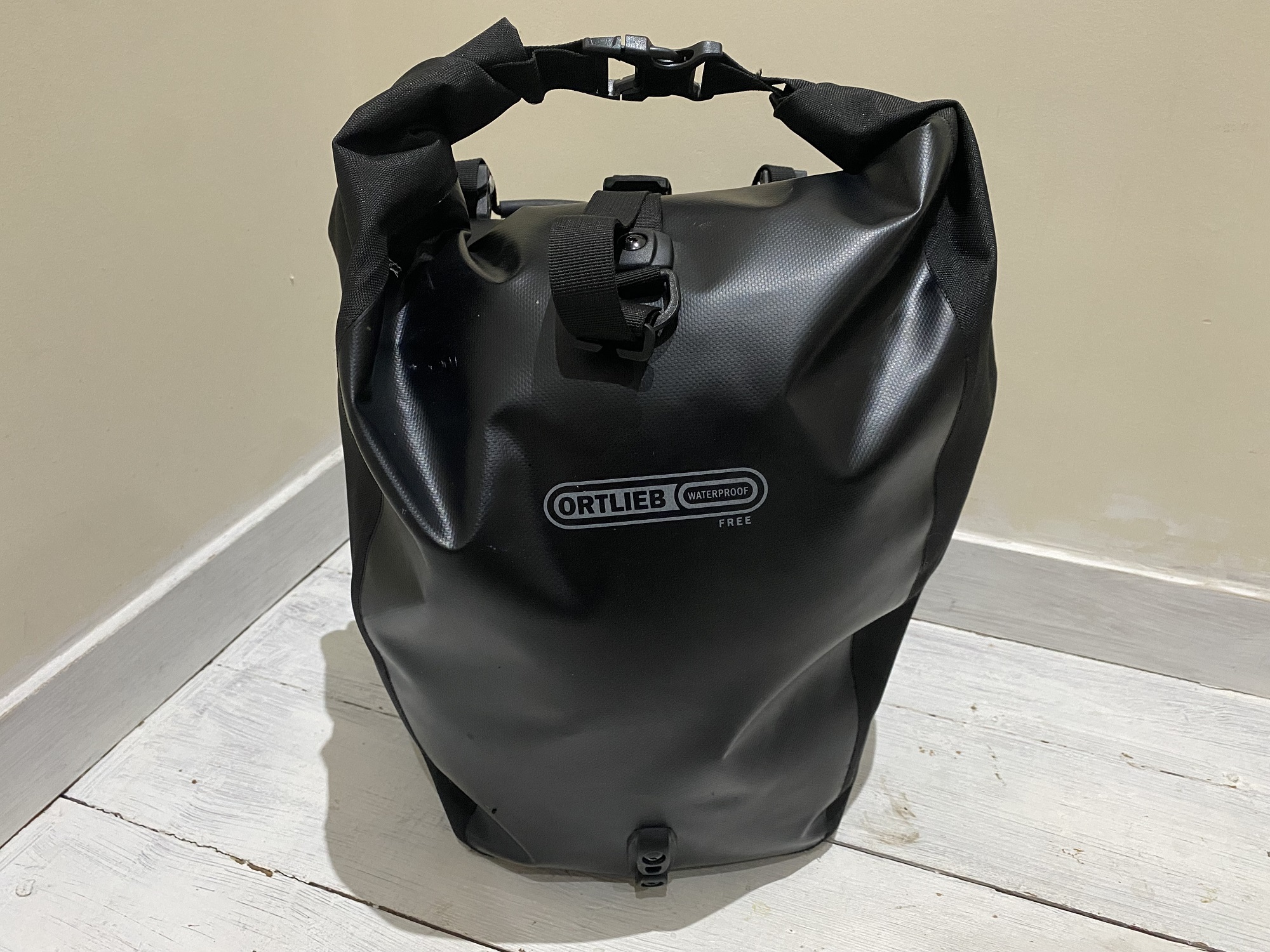
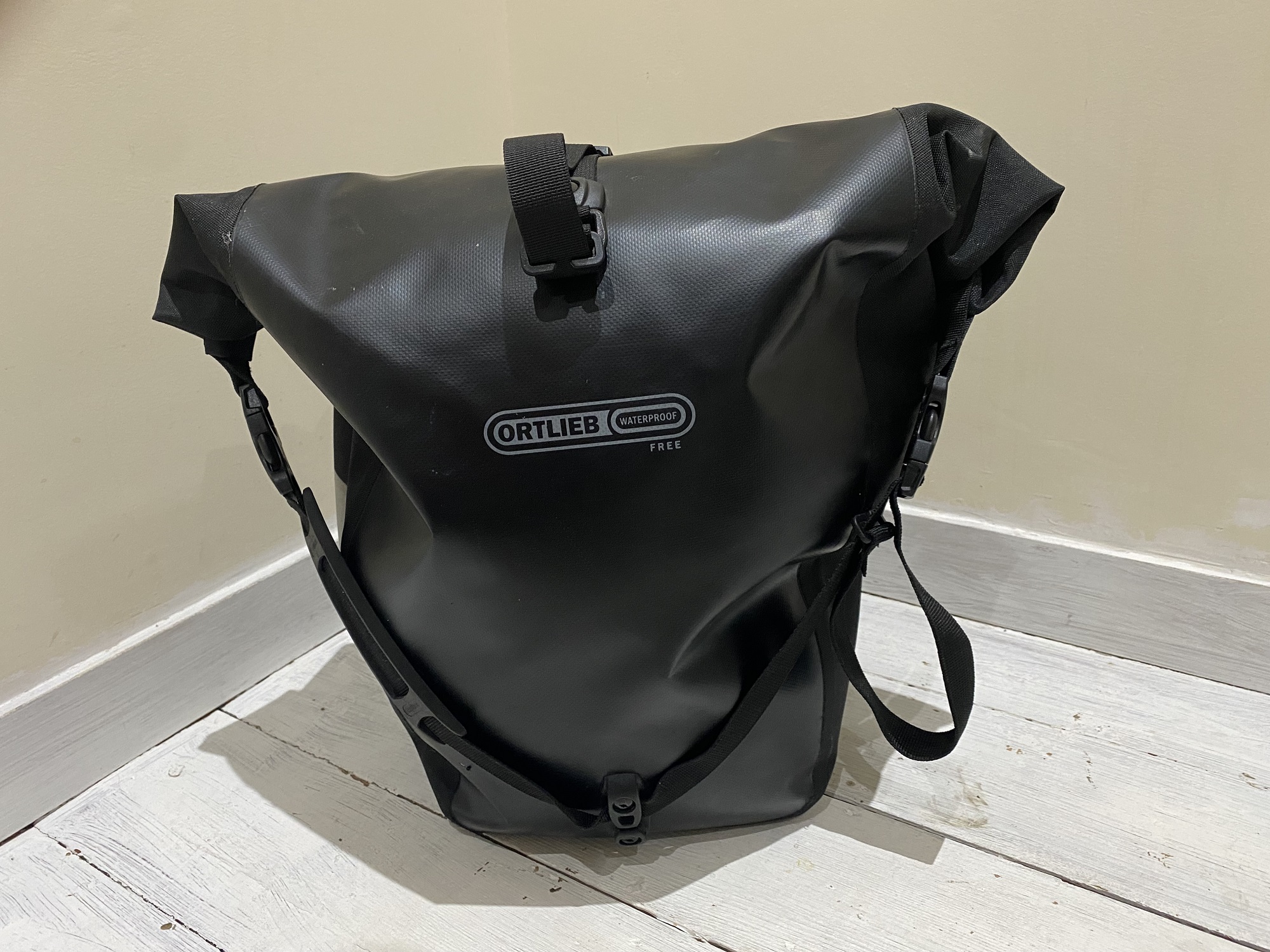
The Quick-Lock 2.1 system is easy to operate: lift the handle to open the hooks, release it to clamp them to the tubing. 8, 10 and 12mm anti-scratch adapters are included to ensure a snug fit on any rack. Adjustment is tool-free, a refinement that occurred several years ago; previous versions required an Allen key to adjust the positions of the hook and clamps.
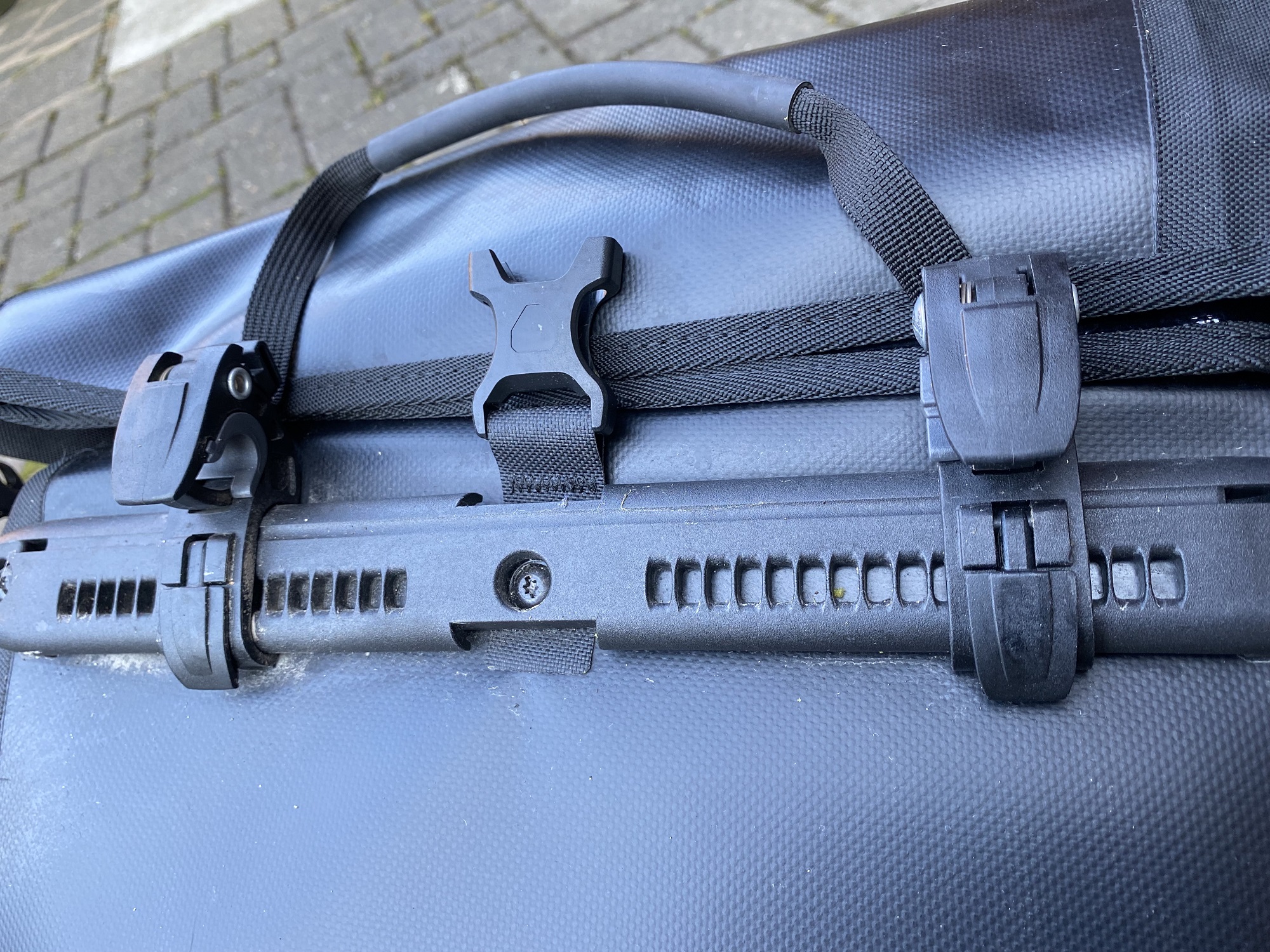
The lower hook can slide and rotate to accommodate various rail arrangements, again this is tool-free.
A rigid moulded strip of plastic protects the base of the pannier, and ensures it holds it’s shape when loaded.
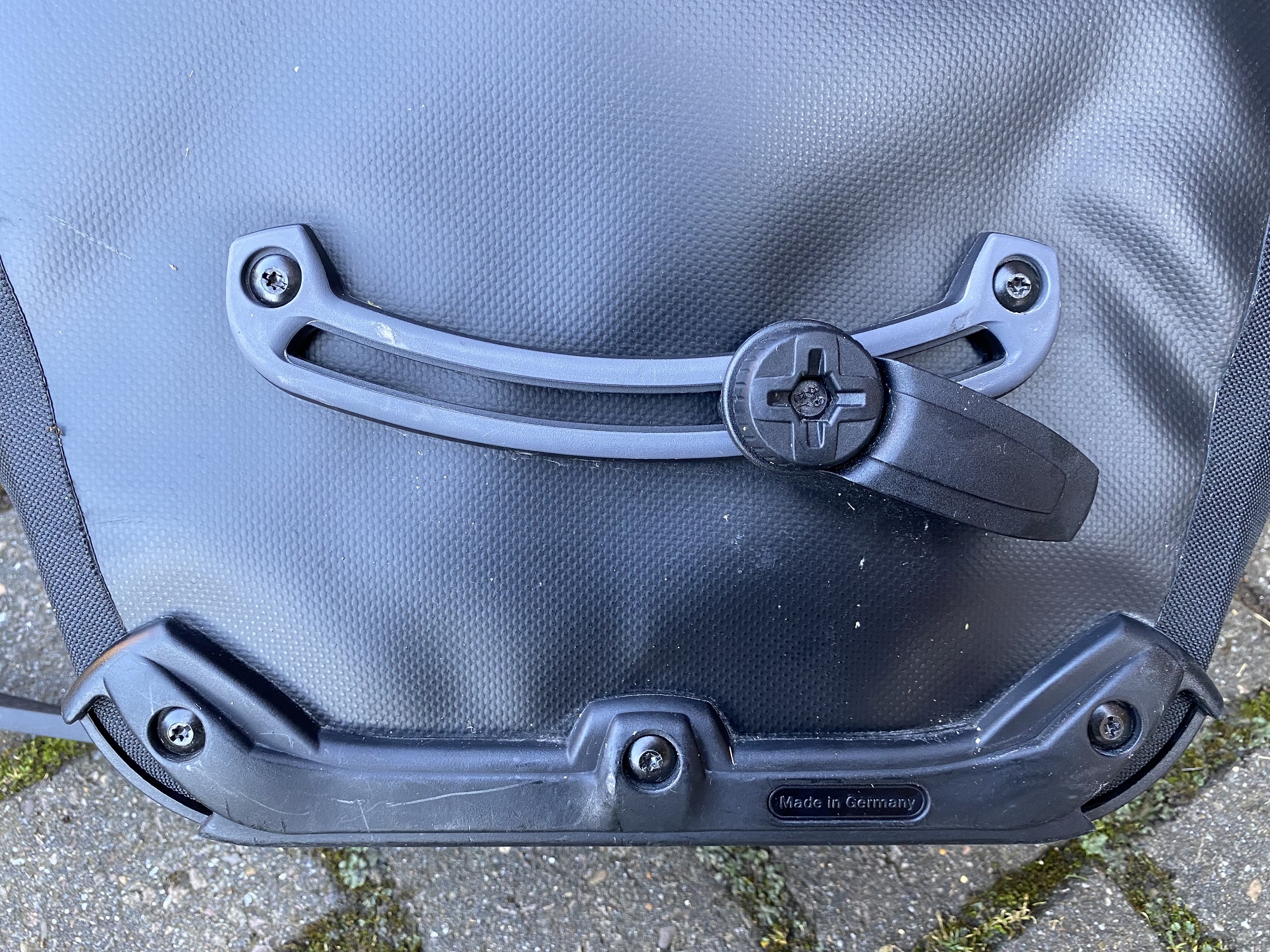
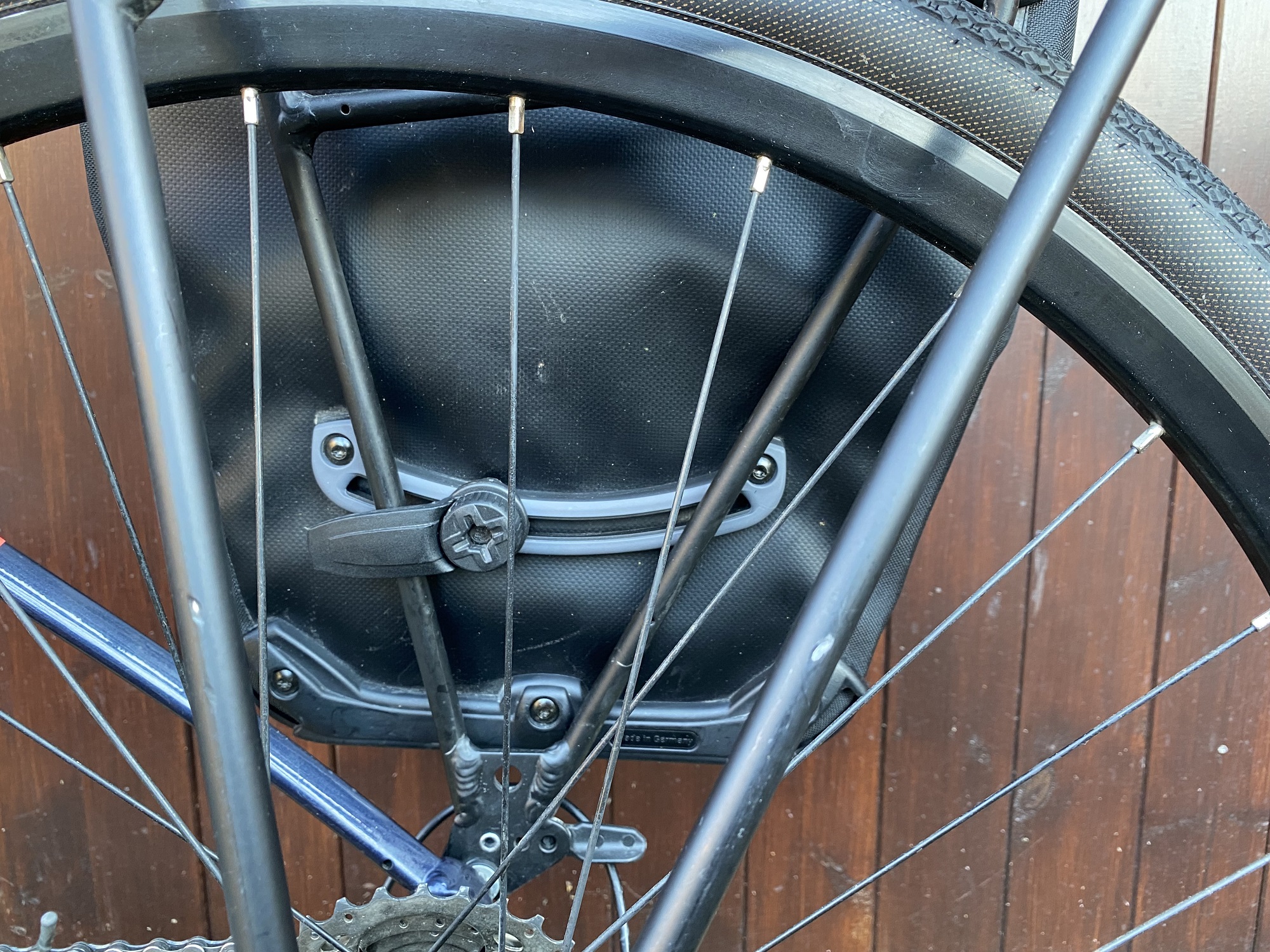
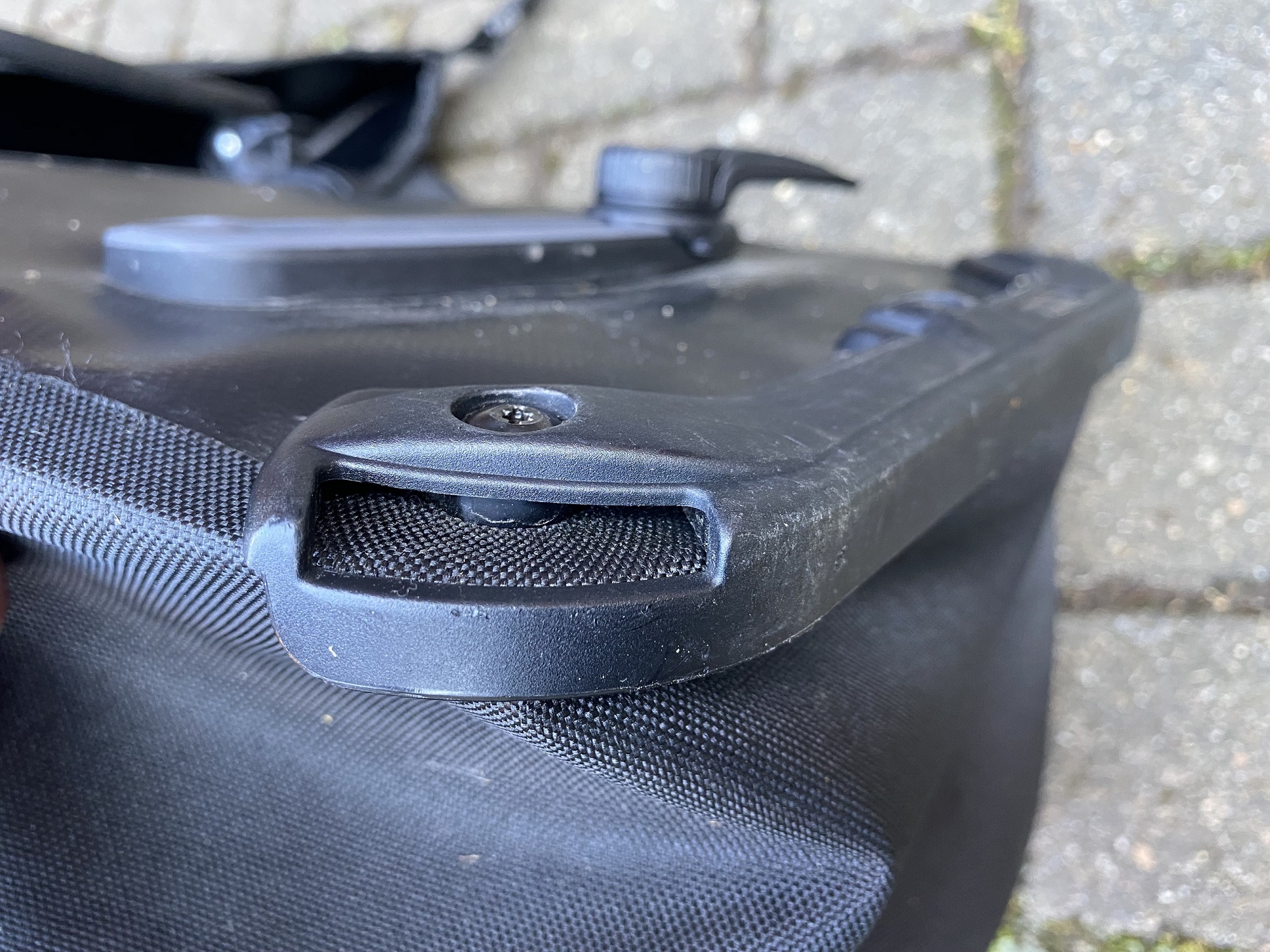
Inside there’s a zipped mesh pouch and a deeper sleeve that conveniently sits against the reinforced rear.
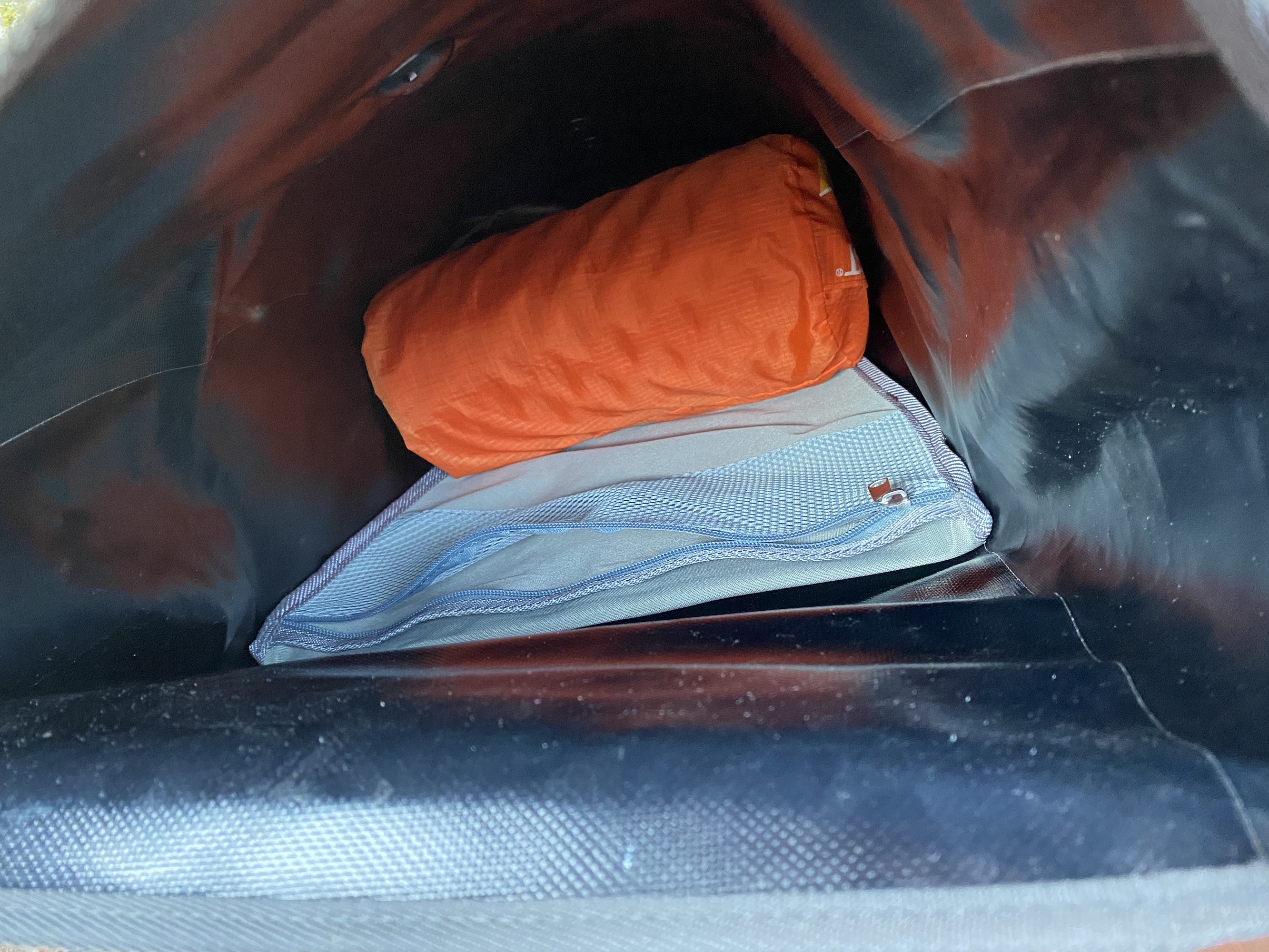
Finally, and most significantly, the Back Roller Free panniers are completely PVC-free. Unlike the Back Roller Classic's double coating of PVC, the Free is made with a PU-laminated polyester fabric. Ortlieb claim that the Free is just as robust and perfect for touring, indeed it carries the same IP64 rating as all other Back Roller Panniers.
Each pannier weighs 925g (the Classic weighs 950g). Ortlieb offers three different colours: Black, Lagoon and Rust, each features the bold 3M Scotchlite reflectors associated with Ortlieb.
The Free comes with Ortlieb's standard five-year warranty.
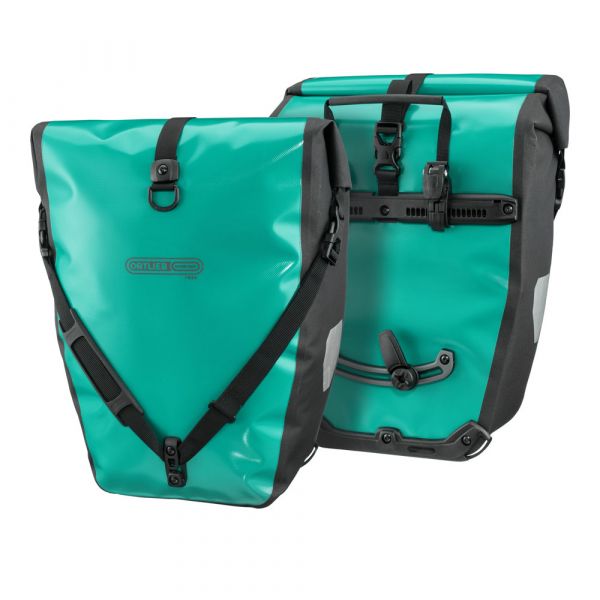
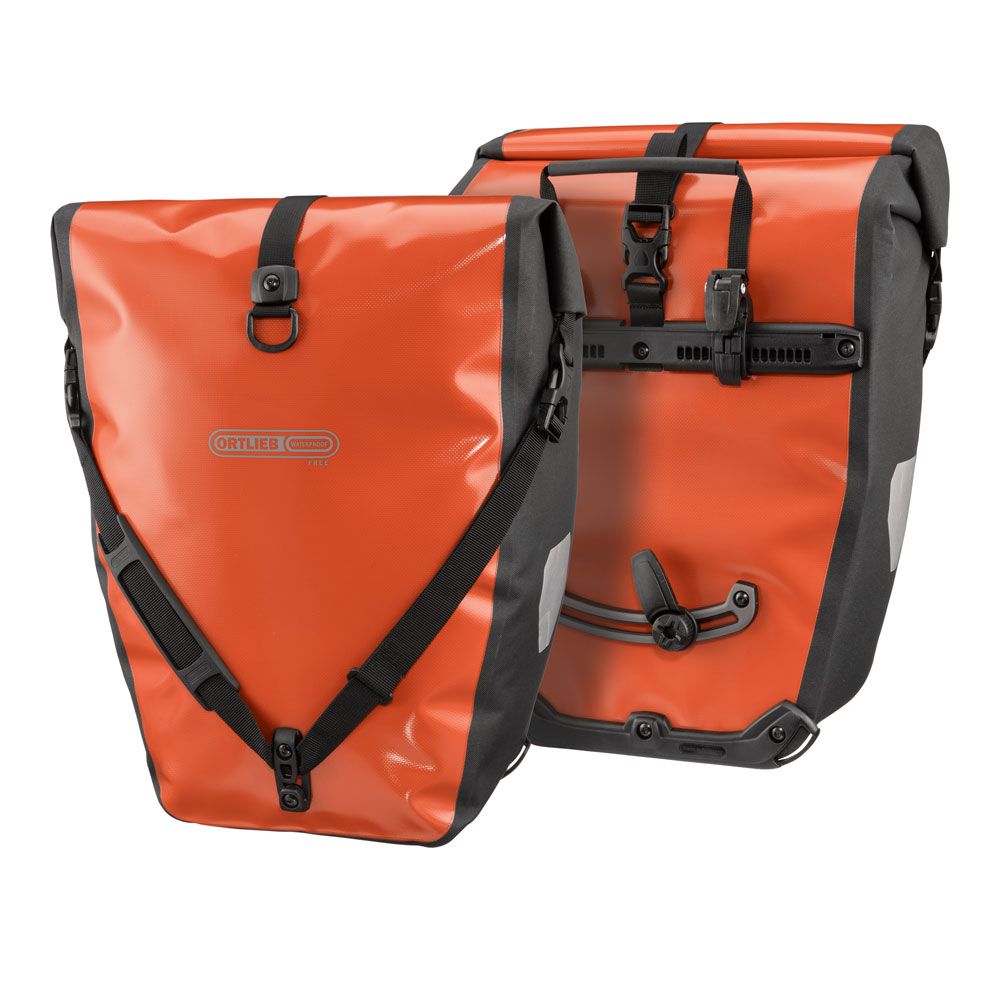
PERFORMANCE
The material was the first thing that struck me about the Free panniers - it feels more malleable than the Classic, a property that will likely appeal to most; it makes packing out the panniers easier. The seams are brilliantly manufactured and finishing is second to none. Overall there are no flaws or weak points to note.
Throughout the entire tour pannier my kit was reliably protected from dust, rain, hail and heavy dews. The roll-top closure and durable fabric work exactly as they should.
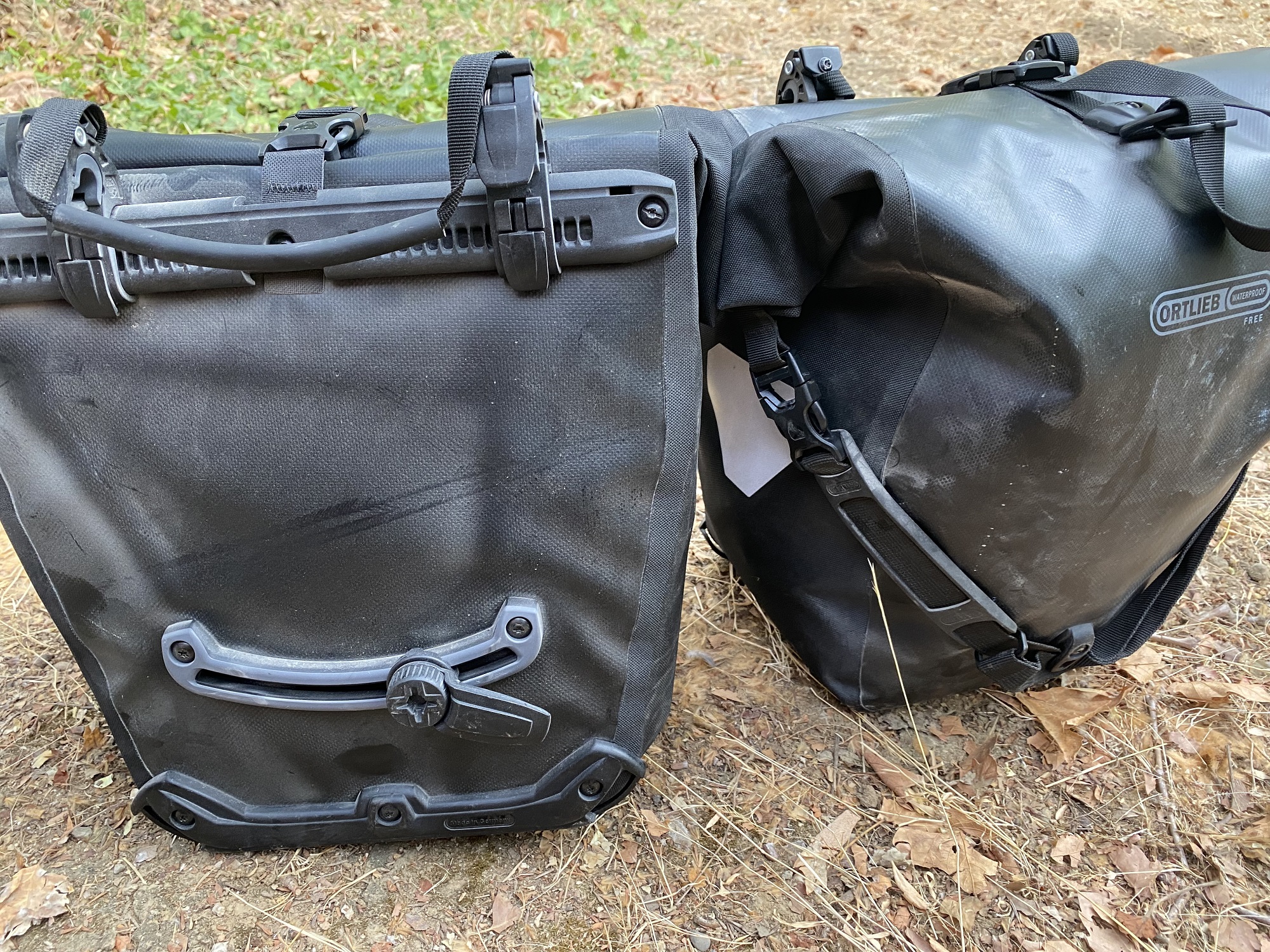
The interior pockets are super for maps, documents or smaller objects; you don’t need to rummage around to locate them and the former are kept in good shape.
The tapered body of the pannier lends itself well to strategic packing; heavier, smaller objects like a gas cannister and cooking equipment fit neatly at the bottom and bulkier, lighter things (like a sleeping bag) fit well in the upper half.
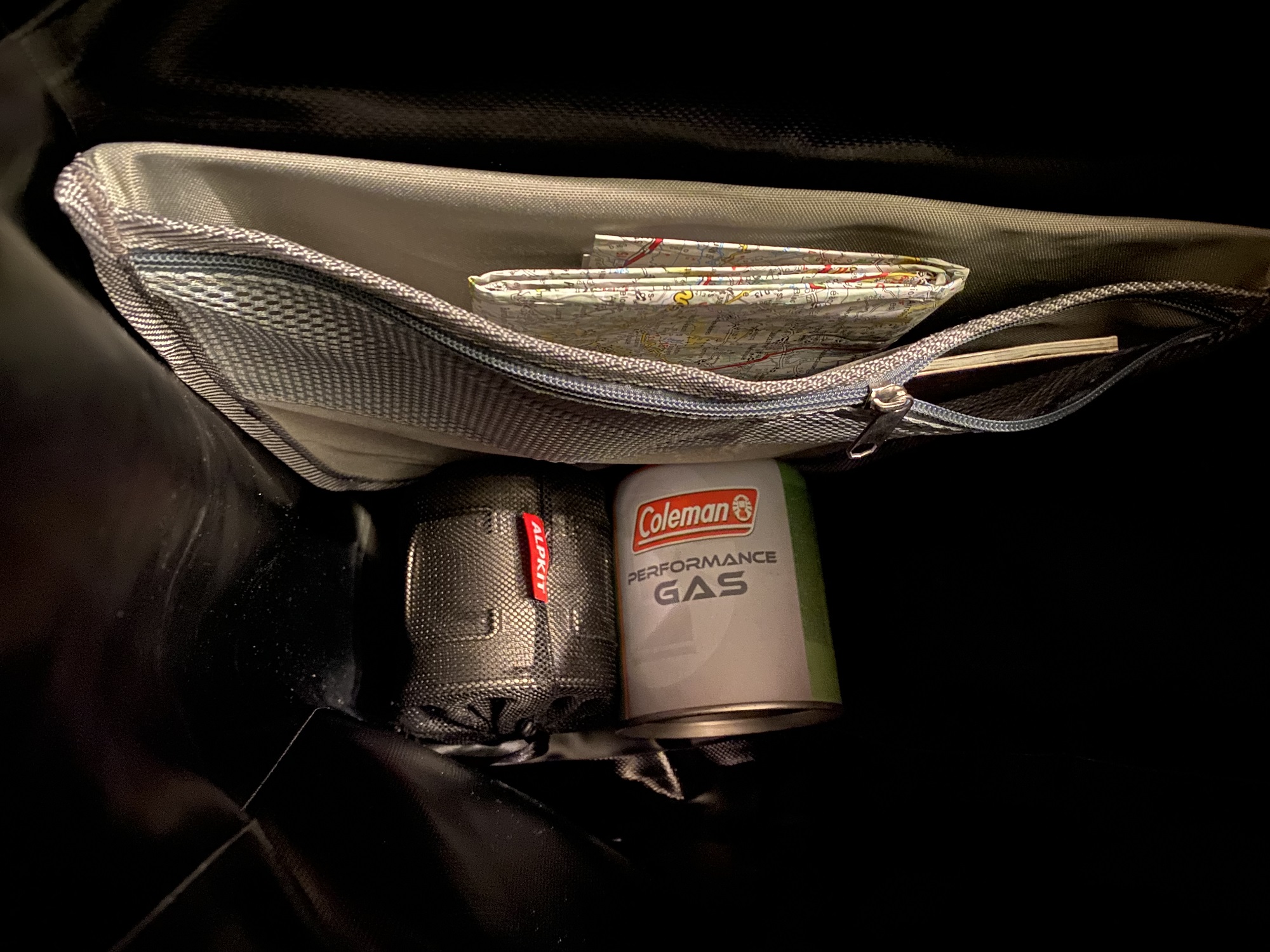
Attachment to the Ortlieb Quick Rack (that I was testing at the same time) was stable and secure. Using the panniers on other racks has been a breeze too; the tool-free adjustment is as good as it gets.
I personally kept the shoulder strap attached at all times. The moveable shoulder ‘pad’ makes carrying the panniers comfortable as well as convenient, particularly if you are carrying other kit at the same time.
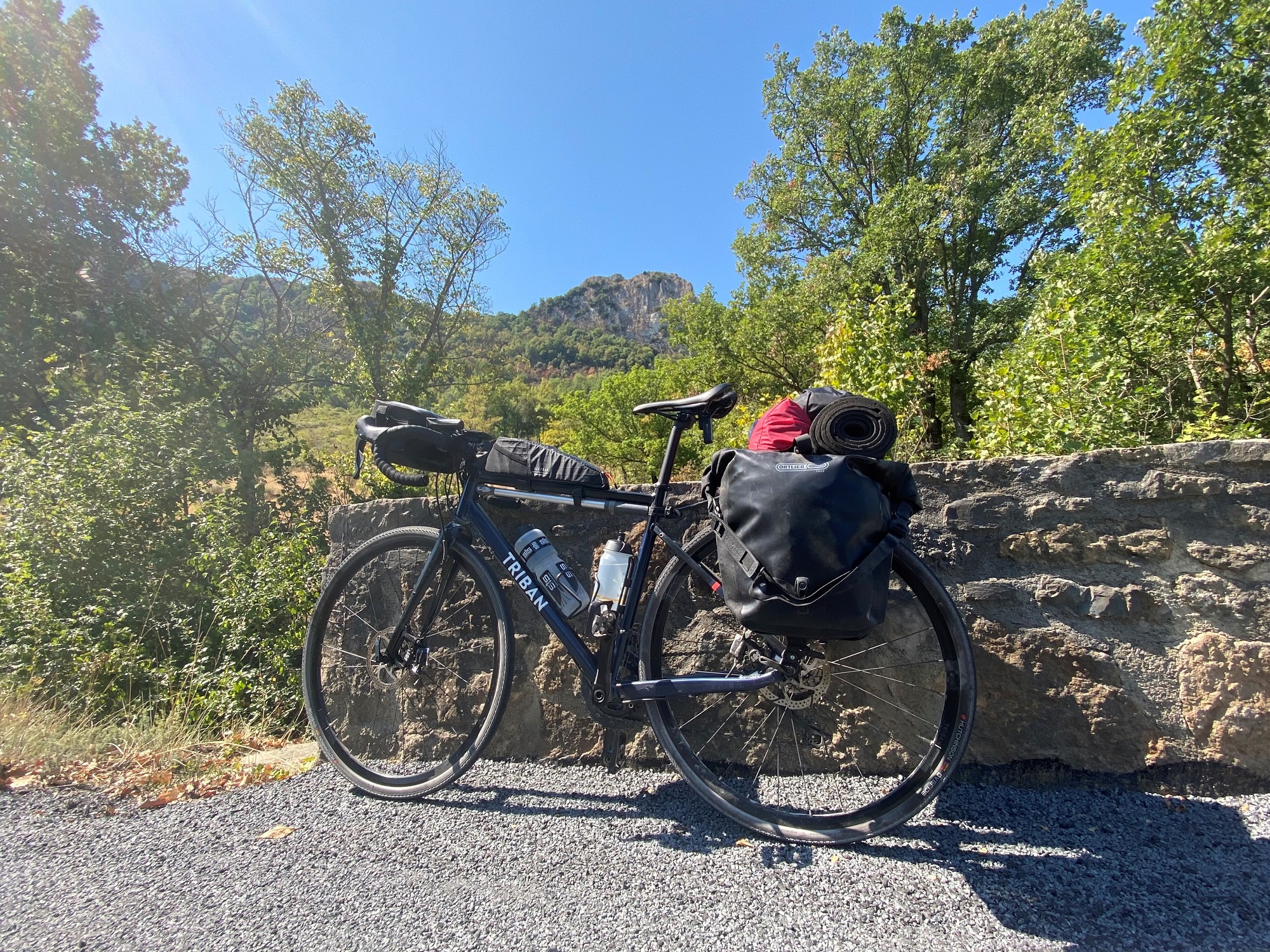
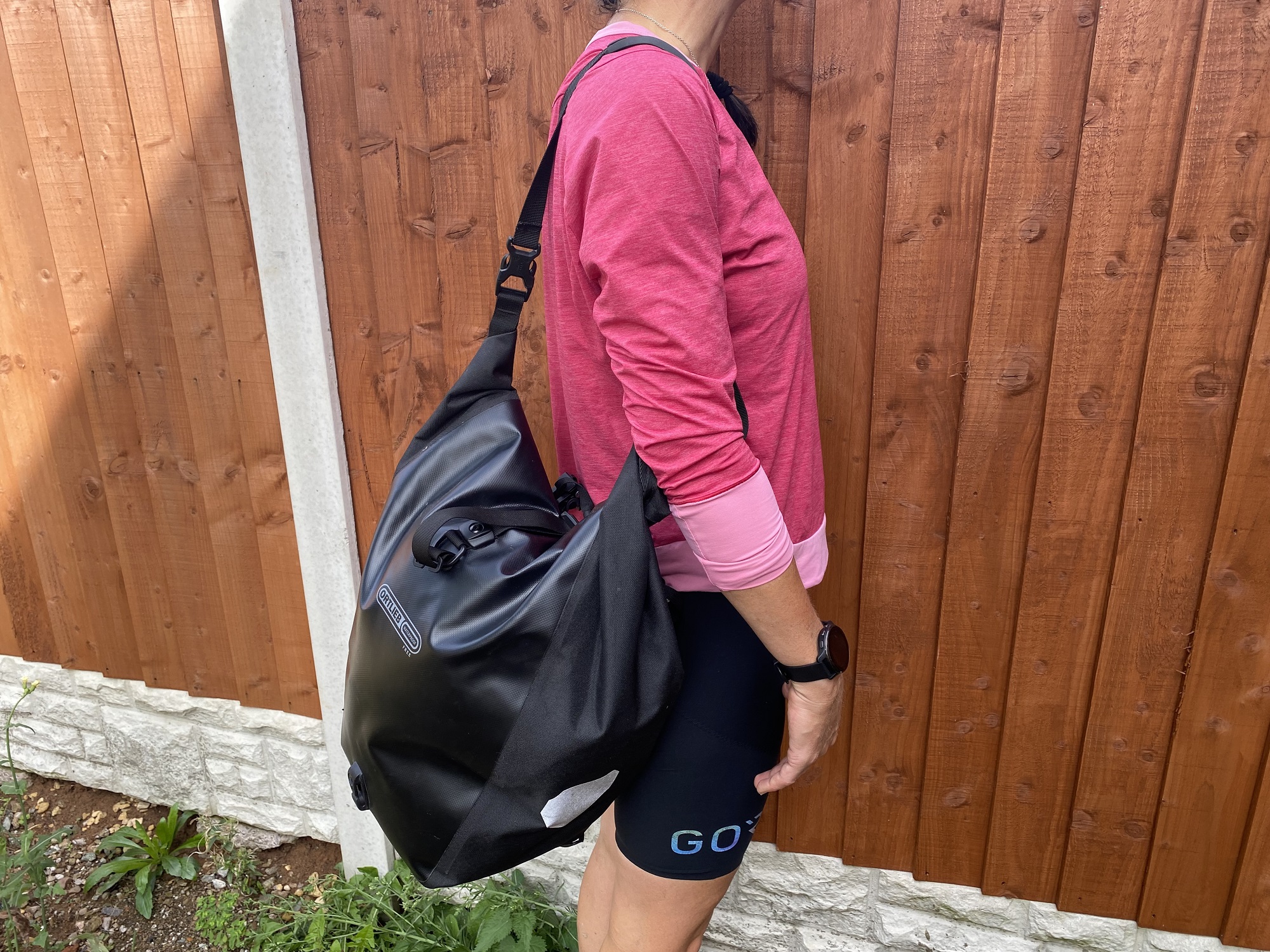
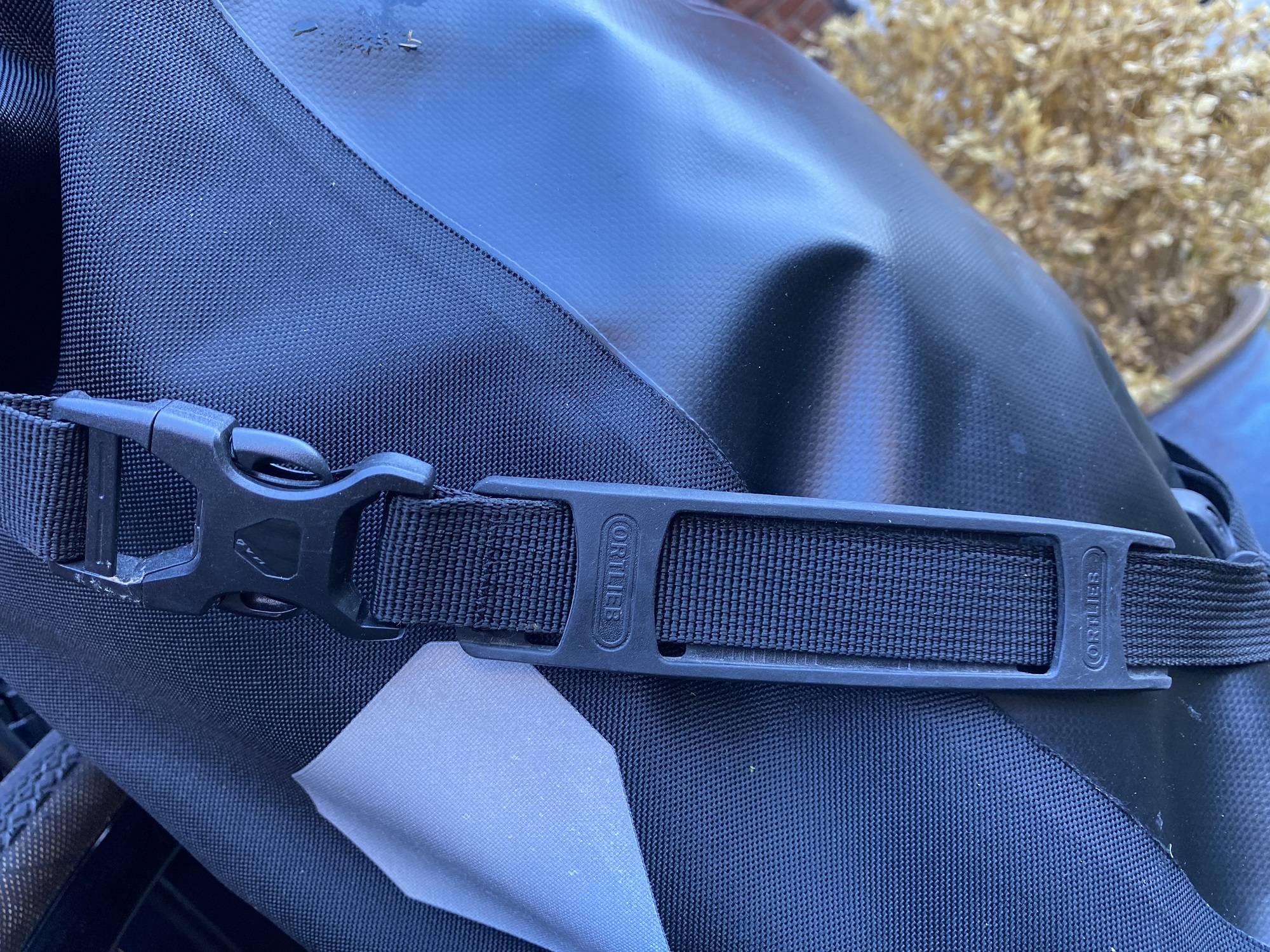
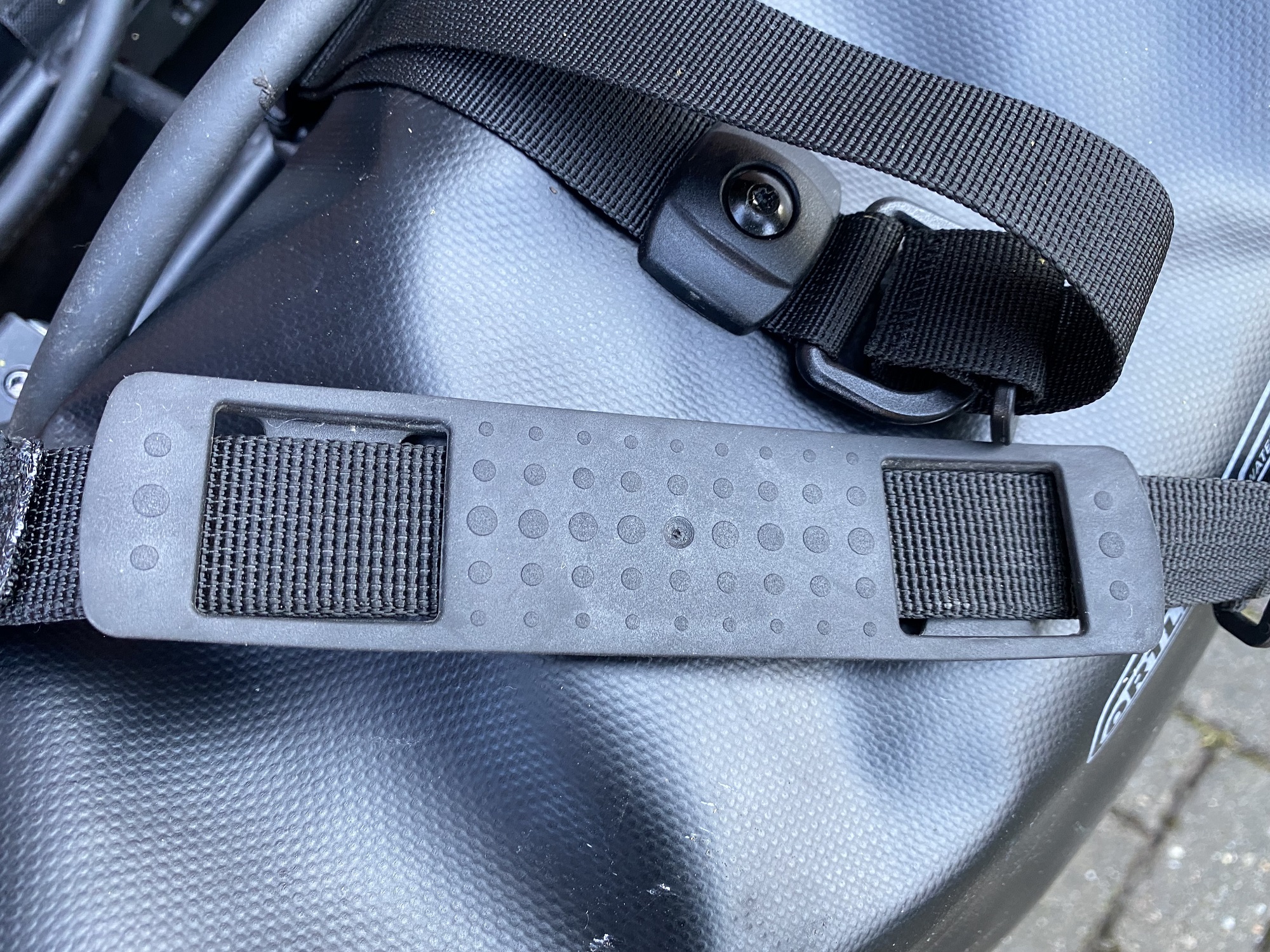
Over the last 20 years I’ve done 90% of my touring with a pair of Ortlieb Back Roller Classic panniers and I am utterly convinced that they are built to last; they still work as well as they did when new and show very little sign of wear. After three weeks of being treated rather roughly (in the name of testing) the Free panniers are looking well used.
I'm inclined to think that the outer surface is more prone to scuffs than the PVC version. That said, a jet black material tends to show abrasions more easily (my Classic panniers are grey). Either way, performance of the Free panniers is completely unaffected and undoubtedly a PVC-free option is better for both consumers and the environment.
VALUE
The Back Roller Free panniers have an RRP of £140/$210, £5/$10 more than the Back Roller Classic. Investing in a single pannier is possible (if you don't want a pair), though much more expensive at £90/$120.
Considering the five-year warranty, functionality and responsible manufacturing, I’d say £140/$210 is excellent value for money. If they last as long as the Classic panniers I’ve mentioned, it’s outstanding. A comparable option would be Vaude’s Aqua Back rear panniers for £130/$135, they are also PVC-free and come with a two year warranty. I can’t comment on the longevity or performance of these.
It’s not surprising that Ortlieb’s Back Roller panniers are a favourite among tourers; they do what they are designed to exceptionally well and are built to last. The introduction of the Free offers those looking to invest, or replace, the option of making a more responsible purchase without compromising on performance.
SPECIFICATIONS
- Material: D62, PS60
- Adapter: Quick-Lock2.1
- Weight: 2 x 925 g | 32.6 oz
- Height: 42 cm | 16 inch
- Upper width: 32 cm | 12 inch
- Lower width: 23 cm | 9 inch
- Depth: 17 cm | 6 inch
- Volume: 2 x 20 l | 1220.5 cu.inch

Thank you for reading 20 articles this month* Join now for unlimited access
Enjoy your first month for just £1 / $1 / €1
*Read 5 free articles per month without a subscription

Join now for unlimited access
Try first month for just £1 / $1 / €1
Get The Leadout Newsletter
The latest race content, interviews, features, reviews and expert buying guides, direct to your inbox!
Emma’s first encounters with a bike were in between swimming and running. Soon after competing for GB in the World Age Group Triathlon Championships in Edmonton in 2001 she saw the light and decided to focus on cycling.
With a couple of half decent UK road seasons under her belt, she went out to Belgium to sample the racing there, spending two years with Lotto-Belisol Ladies team, racing alongside the likes of Sara Carrigan, Grace Verbeke, Rochelle Gilmore and Lizzie Deignan. Emma moved from Lotto-Belisol to Dutch team Redsun, working primarily as a domestique for Emma Johansson. When Redsun folded, Emma was offered the opportunity to ride with a newly formed Belgian team and home to the first year senior and budding rider Anna Van Der Breggen.
After retiring, Emma returned to teaching, setting up her own tutoring business. When not coercing kids to do maths, she is invariably out on two wheels. While the road bike remains her true passion, she has also developed an addiction to touring, with destinations including Iceland, Georgia and Albania, to mention just a few. There have also been sightings of Emma off-road, on mountain and gravel bikes… As if all of this isn't enough, she's been working as a freelancer since 2005, testing and reviewing the latest kit and sharing her insight into the sport.
-
 The thing that bothers me most when I look back at old school training is that right now we’re doing something equivalently misguided
The thing that bothers me most when I look back at old school training is that right now we’re doing something equivalently misguidedOur columnist's old training diaries reveal old-school levels of lunacy
By Michael Hutchinson Published
-
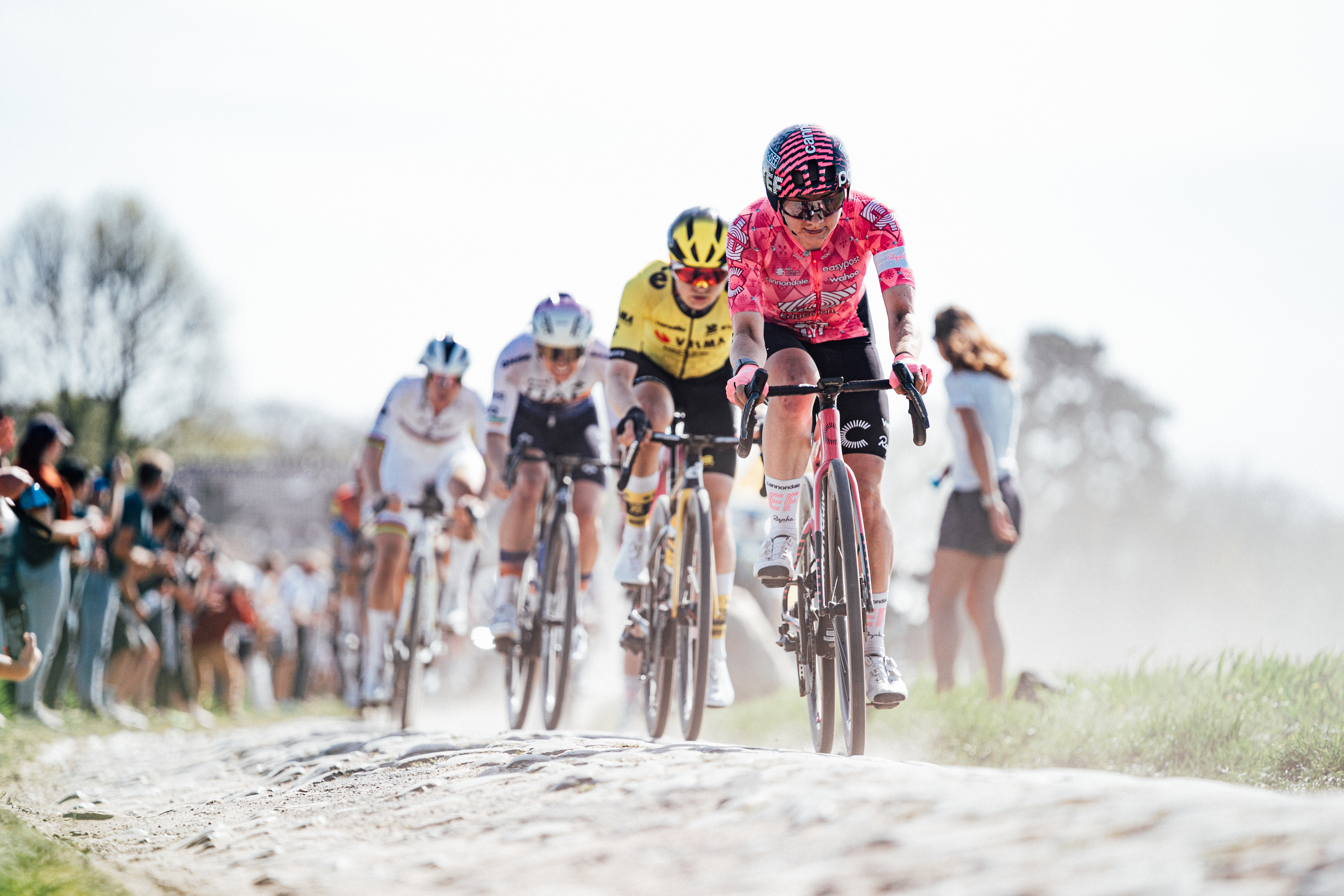 'This race is absolutely disgusting': Peloton reacts to another brutal Paris-Roubaix Femmes
'This race is absolutely disgusting': Peloton reacts to another brutal Paris-Roubaix FemmesNow in its fifth edition, Paris-Roubaix Femmes is still a tough race, even for the best bike riders in the world
By Adam Becket Published
-
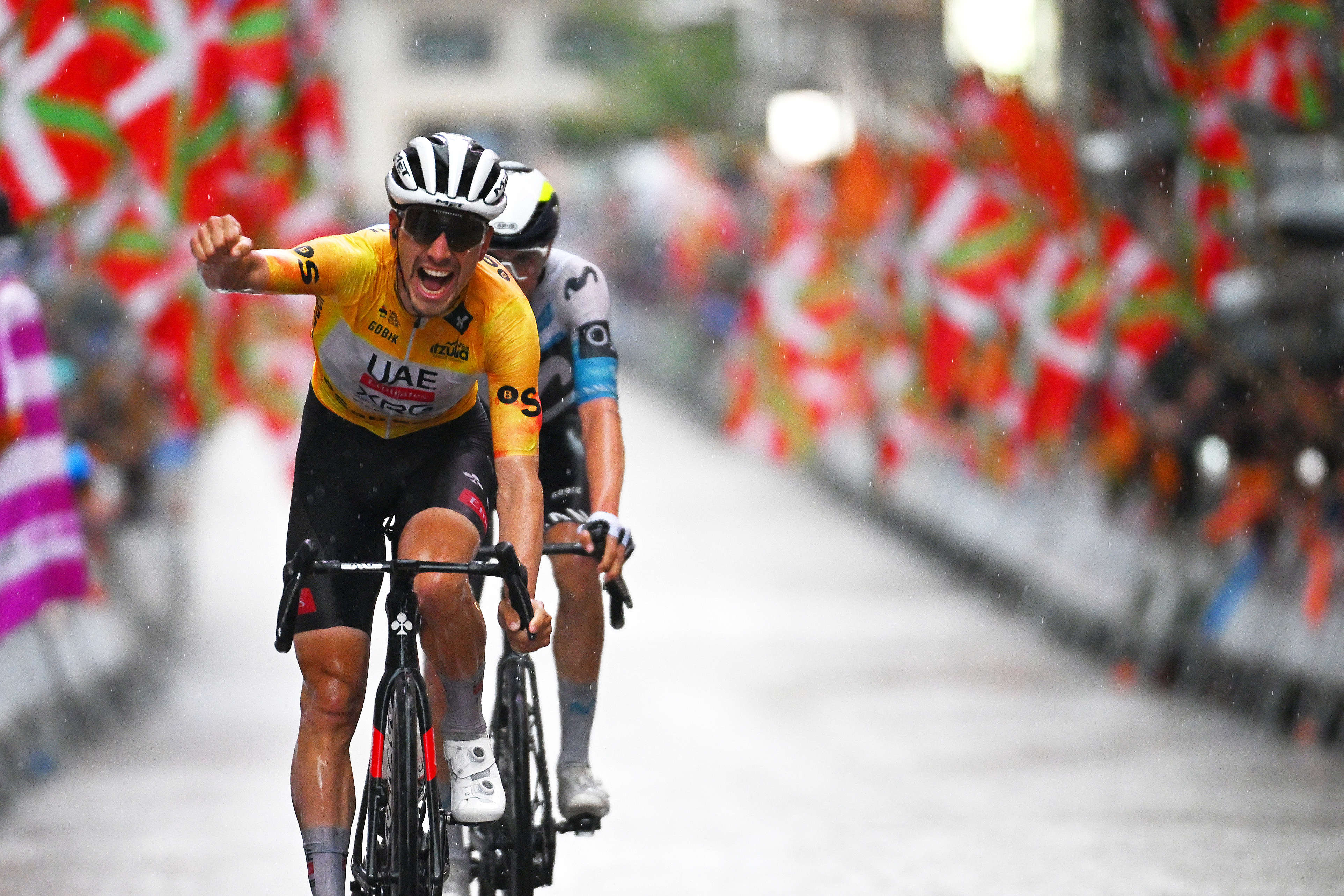 ‘It’s the biggest win of my career’ says João Almeida after crushing Itzulia Basque Country success
‘It’s the biggest win of my career’ says João Almeida after crushing Itzulia Basque Country successUAE rider wins the final stage to finish almost two minutes clear of Enric Mas on GC, with Max Schachmann in third
By Peter Cossins Published